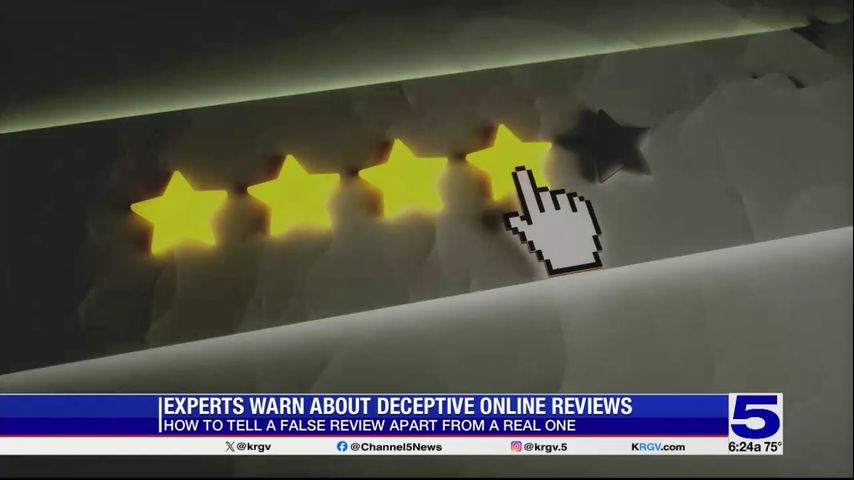Smart Living: Experts warn about deceptive online reviews
Who among us has not decided to make an online purchase or go to a restaurant without first reading the reviews?
Statistics say that 49% of consumers trust online reviews as much as personal recommendations. But behind the bright stars, a sneaky shadow could be crushing your expectations.
"They can lead you to a false belief that this is a good product," President of Cutting Edge Technologies John Degen said.
Around 80% of consumers reported encountering a fake review. Amazon, Facebook and Google are listed in the top three on seeing fakes.
"Especially with the advent of AI and all that, you got to be careful," Degen said.
So how can you spot one?
Degen says keep an eye out on the overly positive reviews.
"Then also see if, are there lots of those that are kind of weird. You know what I mean? You wouldn't take that much time to write it," Degen said.
On the other hand, if you see a one-star review with little to no information — that's another sign.
When shopping on Amazon, look for verified purchase badges to confirm that the reviewer really bought and used the product. Also, check the flow of a review. Degan says it's another sign.
"I see that a lot, where even they'll misinterpret gender on the different types, when you're speaking, and it doesn't flow right, with the actual review," Degen said.
And if you're still unsure, tools like Fakespot, can help you identify which ones are fake and real.
Degen also says the best way to combat this is to leave genuine reviews. If you have a great experience with a product or service, leave a good review or if you've got a negative problem, go ahead and post that too and give the vendor a chance to make it right for you.





